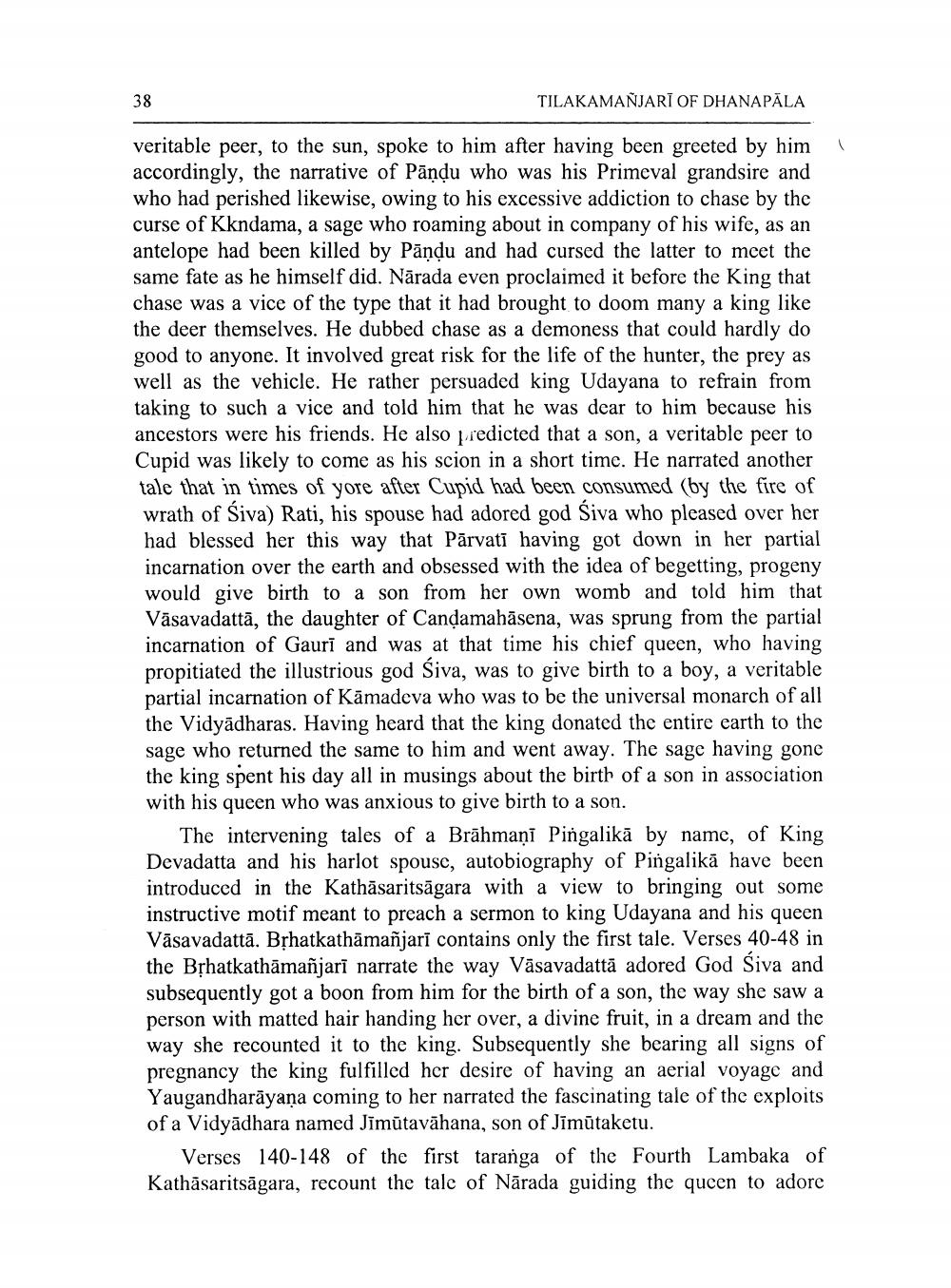________________
TILAKAMANJARĪ OF DHANAPĀLA
veritable peer, to the sun, spoke to him after having been greeted by him accordingly, the narrative of Pāndu who was his Primeval grandsire and who had perished likewise, owing to his excessive addiction to chase by the curse of Kkndama, a sage who roaming about in company of his wife, as an antelope had been killed by Pāndu and had cursed the latter to meet the same fate as he himself did. Nārada even proclaimed it before the King that chase was a vice of the type that it had brought to doom many a king like the deer themselves. He dubbed chase as a demoness that could hardly do good to anyone. It involved great risk for the life of the hunter, the prey as well as the vehicle. He rather persuaded king Udayana to refrain from taking to such a vice and told him that he was dear to him because his ancestors were his friends. He also predicted that a son, a veritable peer to Cupid was likely to come as his scion in a short time. He narrated another tale that in times of yore after Cupid had been consumed by the fire of wrath of Siva) Rati, his spouse had adored god Siva who pleased over her had blessed her this way that Pārvatī having got down in her partial incarnation over the earth and obsessed with the idea of begetting, progeny would give birth to a son from her own womb and told him that Vāsavadattā, the daughter of Candamahāsena, was sprung from the partial incarnation of Gaurī and was at that time his chief queen, who having propitiated the illustrious god Siva, was to give birth to a boy, a veritable partial incarnation of Kāmadeva who was to be the universal monarch of all the Vidyādharas. Having heard that the king donated the entire earth to the sage who returned the same to him and went away. The sage having gone the king spent his day all in musings about the birth of a son in association with his queen who was anxious to give birth to a son.
The intervening tales of a Brāhmani Pingalikā by name, of King Devadatta and his harlot spouse, autobiography of Pingalikā have been introduced in the Kathāsaritsāgara with a view to bringing out some instructive motif meant to preach a sermon to king Udayana and his queen Vasavadattā. Brhatkathāmañjarī contains only the first tale. Verses 40-48 in the Brhatkathāmañjarī narrate the way Väsavadatta adored God Siva and subsequently got a boon from him for the birth of a son, the way she saw a person with matted hair handing her over, a divine fruit, in a dream and the way she recounted it to the king. Subsequently she bearing all signs of pregnancy the king fulfilled her desire of having an aerial voyage and Yaugandharāyaṇa coming to her narrated the fascinating tale of the exploits of a Vidyādhara named Jimūtavāhana, son of Jimūtaketu.
Verses 140-148 of the first taranga of the Fourth Lambaka of Kathāsaritsāgara, recount the tale of Nārada guiding the queen to adore




